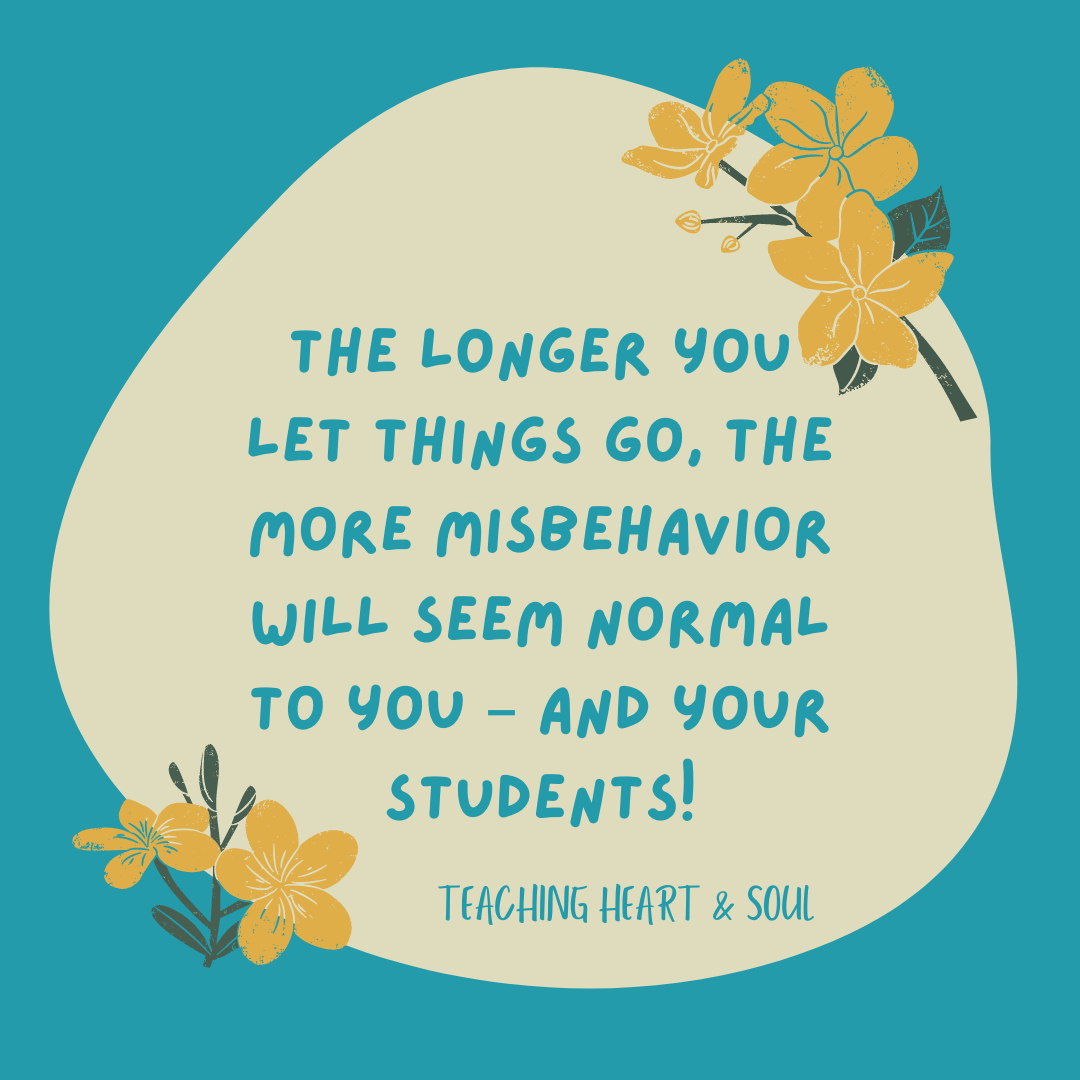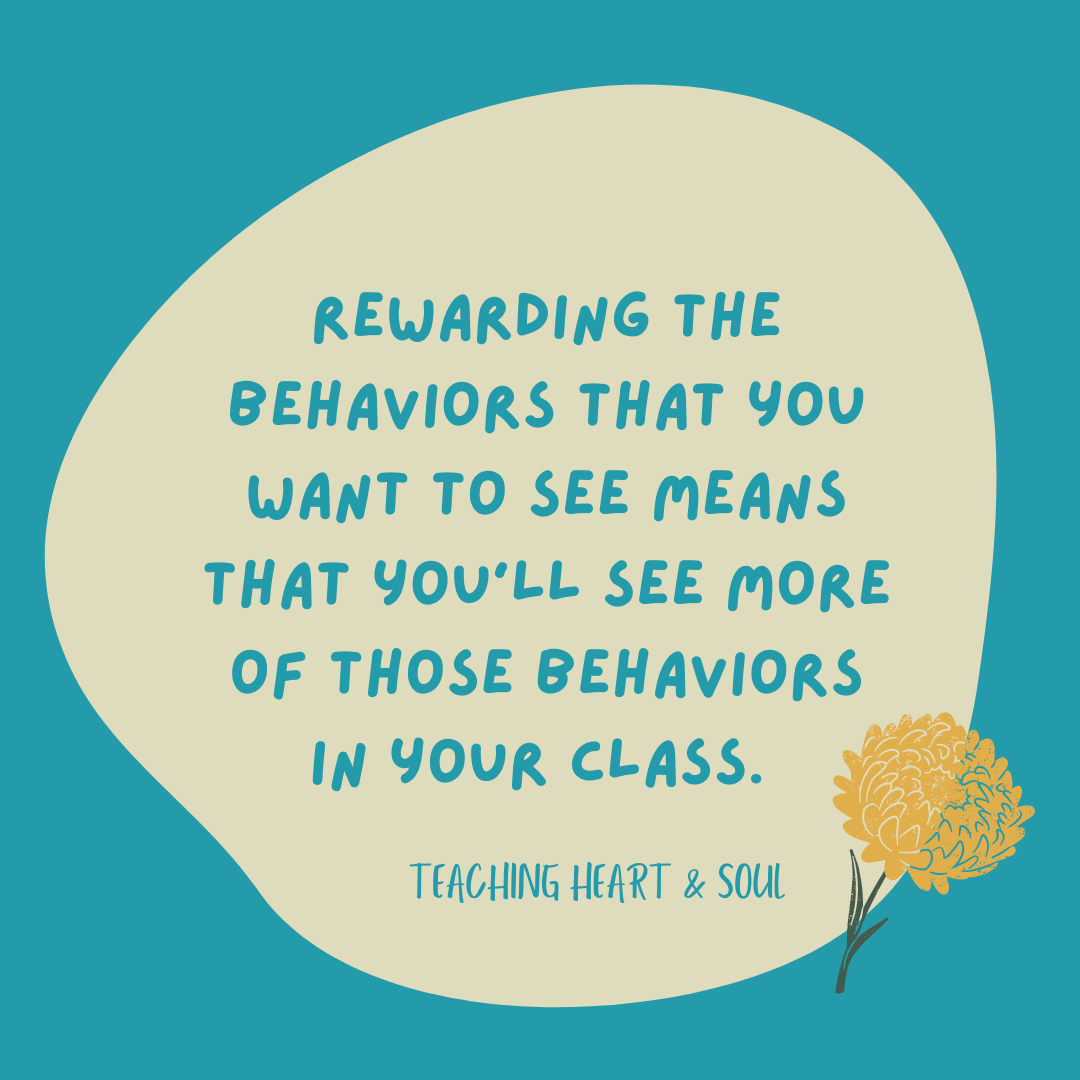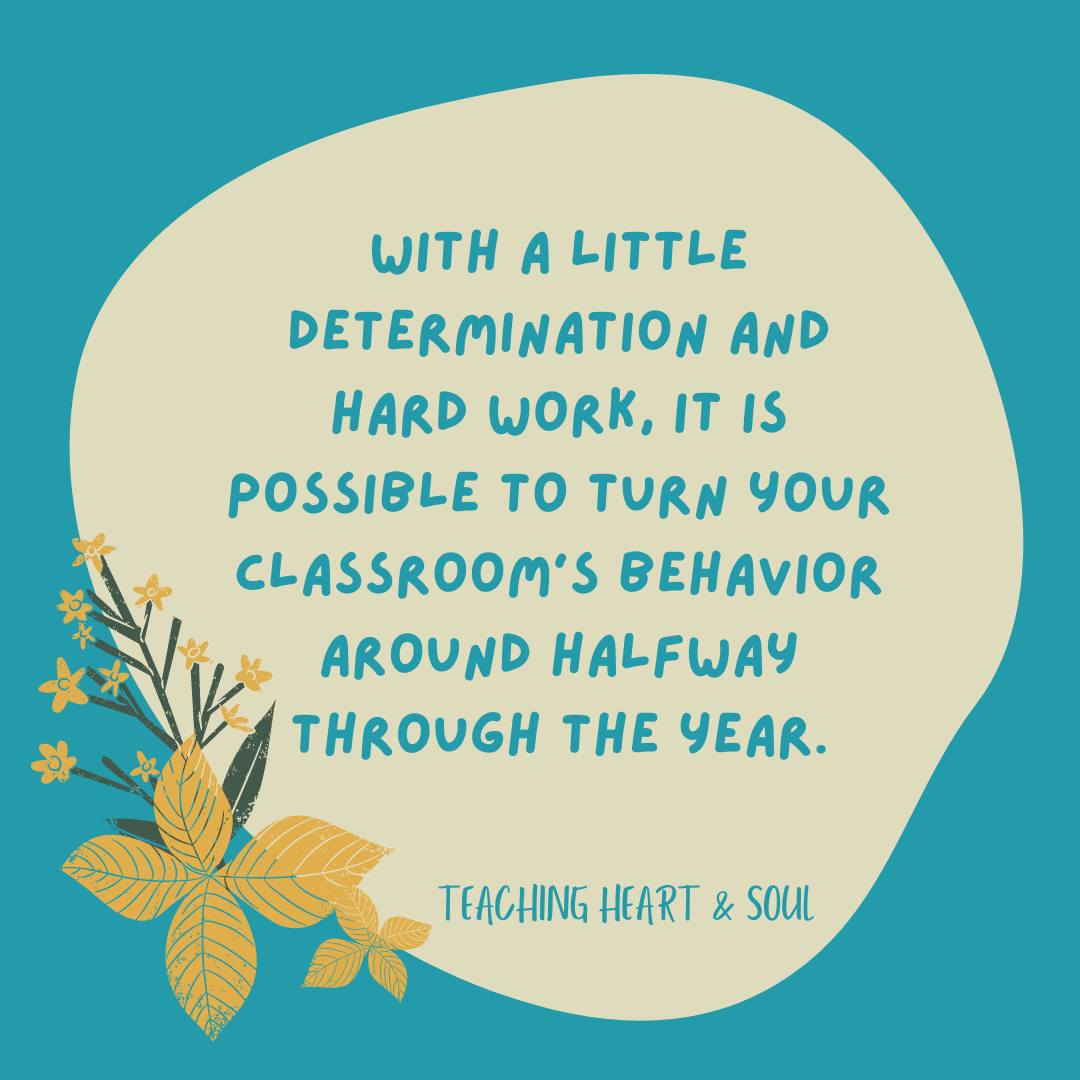How to Change Your Classroom Management Halfway Through the Schoolyear
It’s halfway through the year and your students are driving you up the wall.
Maybe you wanted to be the “fun” teacher, and it went too far.
Perhaps you concentrated on your relationships with your students at the expense of your classroom management.
Whatever happened, you’re a long way through the schoolyear and your classroom is out of control, or at least there are certain behaviors that you can’t handle anymore.
I’ve been there.
I’ve had classes that I gave privileges to prematurely – and I’ve lived to regret it.
I love the back-and-forth discussions, so that seems to be my downfall. I start responding to students who aren’t raising their hands because I want to keep the conversation going. At first it might be okay, but after a few students get away with it, the whole classroom erupts with students talking over each other.
It’s a nightmare.
But, I’ll Change Things Next Year!
If this sounds like you, perhaps you are thinking that you should wait until next year before you change your ways. You’ve survived this long. What difference is the rest of the year?

First of all, the longer you let things go, the more misbehavior will seem normal to you – and your students! The sooner you kick this habit, the better it will be for your classroom (and your sanity!). If you’re unwilling to make these changes now, what makes you think you’ll have a different attitude next year?
Tell your class that, starting Monday, there will be new expectations in place. Introduce a new classroom management system if needed, or finally start implementing the one that you have. (It’s okay to change out your classroom management system because it doesn’t work for YOU, even if it works for your students.)
If you’re worried you won’t be able to do it on your own, ask a trusted coworker to be your accountability partner. Ask her to check in with you every day and then every week to make sure you are following through with your plan.
I’ve found that that telling someone my goal and asking them to check in helps me tremendously.
Get Ready to Make the Change
If you’ve been lax for most of the school year, your students may not believe you when you say things are going to be different now. They won’t turn their behavior around just because you said things have changed. Why should they? You probably told them what the expectations were at the beginning of the year and didn’t follow through. So, what’s changed?
You have.
You’re determined.
You know what to expect.
This time, you’re ready.
Your students will test the boundaries. They should. This is healthy. It lets them know where the boundaries actually are, because this is rarely where we say they are.
So, if you need to turn things around with a chatty class, and you tell them that means no whispering either, even if it’s just one word, you need to enforce that expectation. And, it will be hard.
Collateral Damage Is Expected
Sometimes, it’s the student who never steps out of line who, innocently enough, is the first person to break the rule you just told your class not to break.
Or, it might be that the first infraction is barely an infraction at all. Continuing with the example of talking out of turn, the first student to break the rule might have said a single word under their breath.
What do you do?
You may be tempted to let it go. The first student isn’t going to start misbehaving because you ignore her behavior this one time, and maybe only a couple students even heard the other student – he’s not being a bad example for the whole class.
However, when you revamp classroom expectations, you can’t afford to let anything go. Your speech, your intentions, your new classroom management style will fall apart.
As difficult as it may be, someone must take the fall.
If you are willing to enforce expectations in all circumstances, your students will know that no one is exempt, and no small infraction will be ignored.
The only way your students learn this is if you show them that this is how things work by the way you respond to your students’ behavior – every student, every behavior.
Positive Reinforcement
So far, I’ve only talked about implementing consequences. While this is necessary, another, often more-effective strategy to use is positive reinforcement.

Rewarding the behaviors that you want to see means that you’ll see more of those behaviors in your class.
Instead of relying on discipline, put more of your energy into rewarding good behavior. At our school, we have a reward (and punishment) point system.
When students behave appropriately they receive points, and when they misbehave, points are taken away. Then, if they have enough points at the end of the week, they get an extra recess. Every trimester, students can turn their points in for prizes or privileges.
At first, I would take away points when students misbehaved and ignore the good behavior because I felt like students should behave whether they were rewarded or not. I learned quickly that my philosophy wasn’t very practical in a classroom setting.
So, I changed my methods.
Instead of concentrating on misbehavior, I put more energy into recognizing and rewarding the behaviors I wanted to see.
It was a game-changer!
While you must show your students that you are serious about your expectations by enforcing expectations every time, no matter the student or size of the infringement, concentrate more on positive reinforcement. You will see much better results!
It’s Not Too Late
If you’ve found yourself partway through the year with a class that’s out of control, don’t give up. Don’t wait until next year. It’s never too late to turn your class around.

In my class this year, I started out by letting my students complain when they were upset because I felt like it gave them a voice and allowed them to speak their mind, but it got out of hand.
Every time they had an assignment (which was everyday) my class would complain about not wanting to do the work. I quickly saw how this freedom was becoming a bad habit.
The next day I told them what my expectations were – we all needed to have a good attitude.
I had to enforce this rule quite a few times for the first week, but my students quickly realized that I was serious about my new rule, and they turned their behavior around.
I saw some of my students start to complain, catch themselves, and change what they were going to say.
With a little determination and hard work, it is possible to turn your classroom’s behavior around halfway through the year.
